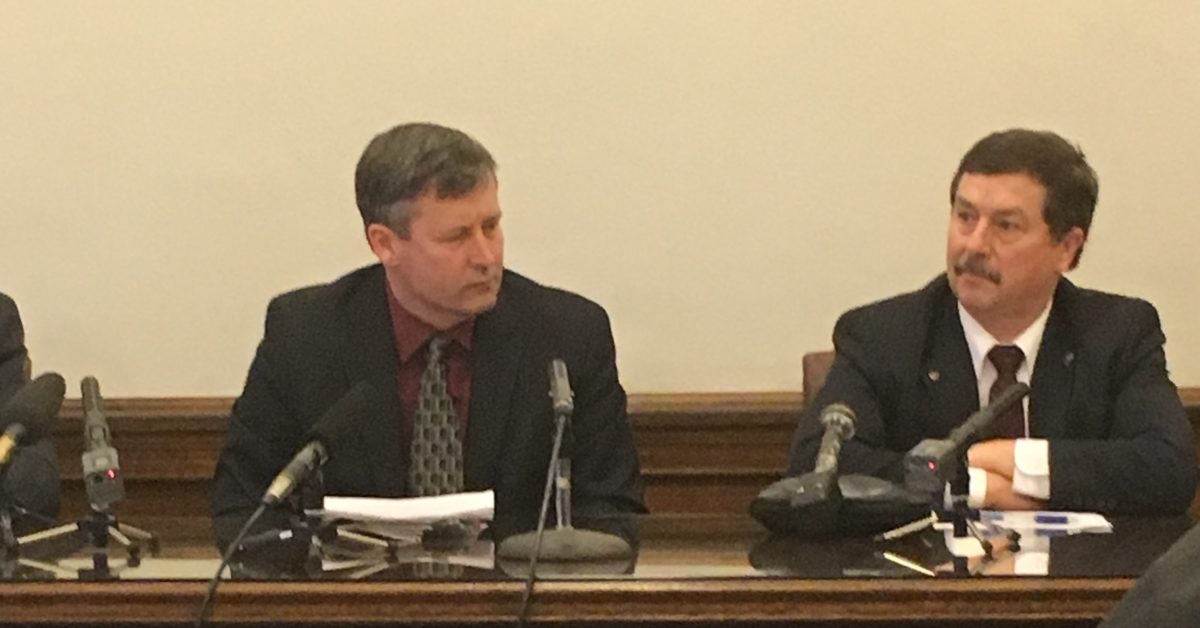When asked whether they would support adding some form of a carbon tax to the state budget at a press conference Monday, Republican leaders criticized the approach.
Was there any chance they’d come around to taxing carbon emissions in the budget?
“Slim to none,” said Sen. Mark Schoesler, R-Ritzville. “You pick winners and losers in a carbon tax. I guarantee you the average family that gasses their car up twice a week, or cars, and sees no improvement in congestion, and less money for bread on the table, loses. Communities that don’t have access to natural gas, but may still use heating oil, lose. We have schools that (would lose), energy intensive industries and those that can’t pass the cost on. So I think no matter what you do, you create losers, in a global economy. As we compete with other states and other countries, we have a carbon tax and they don’t, we will lose jobs.”
Gov. Jay Inslee proposed using a carbon tax to bring in additional revenue as part of his proposed budget. But the proposed tax was criticized by those on the right and left based on arguments that it would not incentivize reducing carbon emissions and that the tax would unfairly burden working families.
State Republican leaders doubled down on the concept of a carbon tax Monday. Rep. Matt Manweller, R-Ellensburg, argued a carbon tax can only be effective if implemented at the national or international level.
“To do it state-by-state is absolutely ridiculous,” he said. “When you’re going to do a carbon tax, it has to be in a closed system. So you do it nationwide, or you do it internationally. But doing a state-by-state carbon tax is like building a square prison with three walls. Ok? It just makes absolutely no sense. Do you think that carbon stops at the Idaho border?”
Sen. Steve O’Ban, R-Tacoma, argued that residents were not willing to take on the tax anyway. He pointed to voter frustration with the Sound Transit tax, which was passed through voter measure in 2016, and kicked in March 1.
“People are fed up, I think, with any notion of a tax increase after opening up their car tabs bills,” he said and argued that it wasn’t a politically saleable path.
Erin Fenner: erin@washingtonstatewire.com, @erinfenner
Your support matters.
Public service journalism is important today as ever. If you get something from our coverage, please consider making a donation to support our work. Thanks for reading our stuff.




